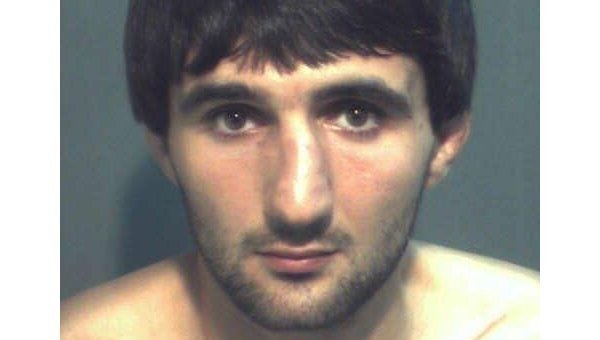MOSCOW, April 11 (RAPSI, Ingrid Burke) - Seeking clarity on the fatal shooting of Ibragim Todashev during an interrogation connected with the Boston Marathon bombing, the American Civil Liberties Union (ACLU) filed a complaint Thursday requesting records from the FBI and US prosecutors.
“When law enforcement officials kill someone in his own home, the public deserves to know who was there, why and under what authority,” the complaint urges.
Todashev, 27, a mixed martial arts fighter who had moved to the US from Russia's Chechen Republic several years earlier, was killed in his Orlando home on May 22 while being questioned about his links to deceased Boston Marathon bombing suspect Tamerlan Tsarnaev and a 2011 Massachusetts triple murder.
Citing the confusion surrounding Russia’s 2011 tip to US officials that deceased Boston Marathon bombing suspect Tsarnaev may have posed a threat, the ACLU seeks information on the functions of Joint Terrorism Task Forces (JTTFs).
The secrecy shrouding the JTTFs has created considerable obstacles in the public’s quest for understanding of Todashev’s shooting death, the complaint argues. JTTFs allow federal, state, and local law enforcement agencies to coordinate efforts in order to enhance their fight against terrorism.
News outlets reported that an assessment had been launched against Tsarnaev in June 2011 following a tip from the Russian authorities. Testifying before a US Congressional committee, however, then-Boston Police Commissioner Edward Davis claimed that although local police worked with the FBI on a JTTF, they were not told about the Russian tip.
“When Information is out there that affects the safety of my community, I need to know that,” Davis said, as quoted in the complaint. The FBI claimed to the contrary that the Boston Police had a full-time representative working with the JTTF that carried out the assessment.
Todashev was killed during an interrogation by a Boston FBI Special Agent, two Massachusetts State Police Troopers, at least one of which may have been assigned to the JTTF, the complaint asserts.
“Despite the FBI’s investigation into thousands of people every year and its recruitment of over 600 state, local, and federal agencies as JTTF participants, little is publicly known about how JTTFs function,” the complaint says.
The ACLU complaint seeks two additional categories of documents, including those concerning investigations carried out by the Boston FBI Field office and those “concerning one notable subject of the FBI’s recent work: Ibragim Todashev.”
The records are being sought pursuant to the Freedom of Information Act (FOIA), a US federal law that requires government agencies to make certain types of information publicly accessible.
Members of the public are able to file request forms with government departments and agencies, which in turn must either provide the information or prove that it cannot be released because it falls within the scope of one of nine valid exemptions to the law.
The organization filed FOIA requests with the FBI and US prosecutors in December 2013. Most of its requests have gone unanswered, though the FBI responded with a refusal in connection with the Todashev records, according to the complaint.
The ACLU requests an order compelling defendants to turn over the relevant records, an injunction barring defendants from charging ACLU processing fees for the record, an award of legal fees, and a grant of any other relief the court deems relevant.



